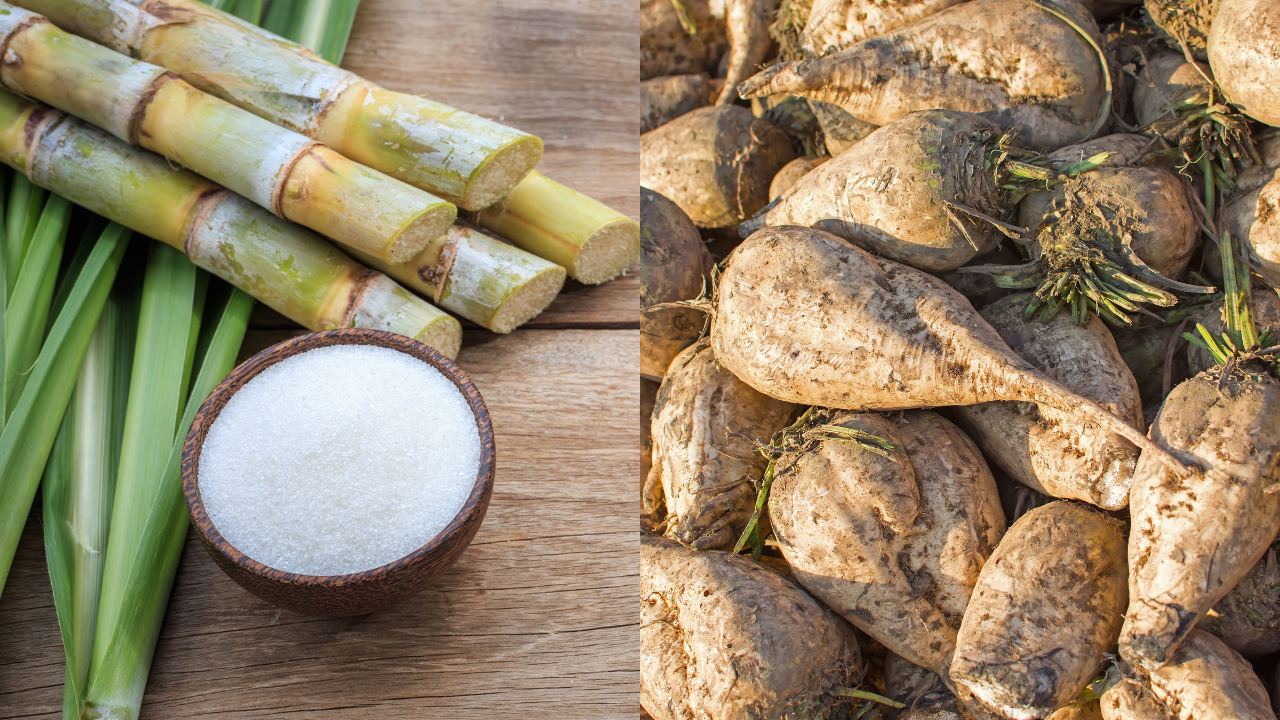The refining process of beet sugar vs cane sugar differs, affecting the final product’s appearance.
The refining process of beet sugar vs cane sugar differs, affecting the final product’s appearance.
Blog Article
Discover the Uses and Advantages of Beet Sugar Vs Cane Sugar in Your Daily Diet
Checking out the distinct top qualities of beet and cane sugar reveals greater than simply their sweetening abilities; it highlights their unique influence on health and wellness and culinary arts. Beet sugar, known for its subtle taste, is usually favored in delicate treats, whereas cane sugar, with its hint of molasses, includes splendor to durable recipes. Each type holds its very own dietary profile and glycemic ramifications, inviting a deeper understanding of their roles in a balanced diet regimen and lasting intake methods.
Origin and Manufacturing Procedures of Beet and Cane Sugar

The distinctive climates and soil types needed for growing sugar beetroots and sugarcane add to distinctions in their growing techniques and geographical distribution, influencing the economics and sustainability of their manufacturing. beet sugar vs cane sugar.
Nutritional Comparison Between Beet Sugar and Cane Sugar
In spite of stemming from different plants, beet sugar and cane sugar are nutritionally really comparable, both primarily being composed of sucrose. Each offers about 4 calories per gram, converting to about 16 calories per tsp. Structurally, both sugars are made up of around 99.95% sucrose, with marginal amounts of other materials like wetness and trace element, which do not considerably change their nutritional accounts.

Inevitably, when picking in between beet sugar and cane sugar based on nutritional content alone, both offer identical benefits and disadvantages as they are basically types of the very same particle-- sucrose, giving fast power without various other nutrients.
Effect On Health And Wellness: Glycemic Index and Caloric Content
Discovering further into the effects of beet sugar and cane sugar on wellness, it is important to consider their glycemic index and calorie content. Both sugars are categorized as sucrose, which contains glucose and fructose. This structure leads them to have a similar influence on blood sugar level levels. The glycemic index (GI) of both beet and cane sugar is around 65, categorizing them as high-GI foods, which can cause quick spikes in blood sugar degrees. This is a crucial aspect for individuals managing diabetes mellitus or those trying to stabilize their power levels throughout the day.
Each sort of sugar consists of about 4 calories per gram, making their calorie content equivalent. For those checking calorie consumption, particularly when managing weight or metabolic health problems, comprehending this equivalence is essential (beet sugar vs cane sugar). Nevertheless, excessive consumption of any kind of high-calorie, high-GI food can add to health problems such as excessive find out here weight, heart disease, and insulin resistance.
Environmental and Economic Considerations of Sugar Production
Beyond health and wellness effects, the manufacturing of beet and cane sugar likewise elevates substantial environmental and financial worries. Sugar beet growing often tends to need cooler environments and has a lower geographical footprint compared this article to sugar cane, which thrives in tropical areas.
Furthermore, the usage of chemicals and plant foods in both beet and cane sugar growing can bring about dirt deterioration and contamination, additional impacting biodiversity and regional water bodies (beet sugar vs cane sugar). The option between growing sugar beet or cane frequently depends upon local ecological conditions and financial aspects, making the sustainability of sugar manufacturing a complex concern
Culinary Applications and Taste Differences
While the environmental and economic aspects of sugar production are certainly substantial, the option in between beet and cane sugar additionally influences cooking applications and flavor accounts. Beet sugar, derived from the sugar beet plant, is recognized for its remarkably neutral taste. This makes it a functional component in baking, where it does not modify the taste of other parts. It liquifies quickly and is excellent for use in cakes, cookies, and pastries.
Walking cane sugar, removed from sugarcane, usually maintains molasses traces, which pass on a distinctive richness and deepness. The minor variation in wetness web content between beet and cane sugar can impact the texture and consistency of dishes, making cane investigate this site sugar a recommended option for certain dishes that profit from its special properties.

Final Thought
To conclude, both beet and cane sugar have distinctive beginnings and manufacturing processes, offering similar dietary accounts with mild distinctions in salt web content and flavor. While their effect on health and wellness, especially regarding glycemic index and calories, is equivalent, the choice in between them commonly comes down to environmental, financial elements, and particular cooking requirements. Recognizing these facets can direct consumers in making notified decisions that align with their health and wellness goals and flavor preferences.
Report this page